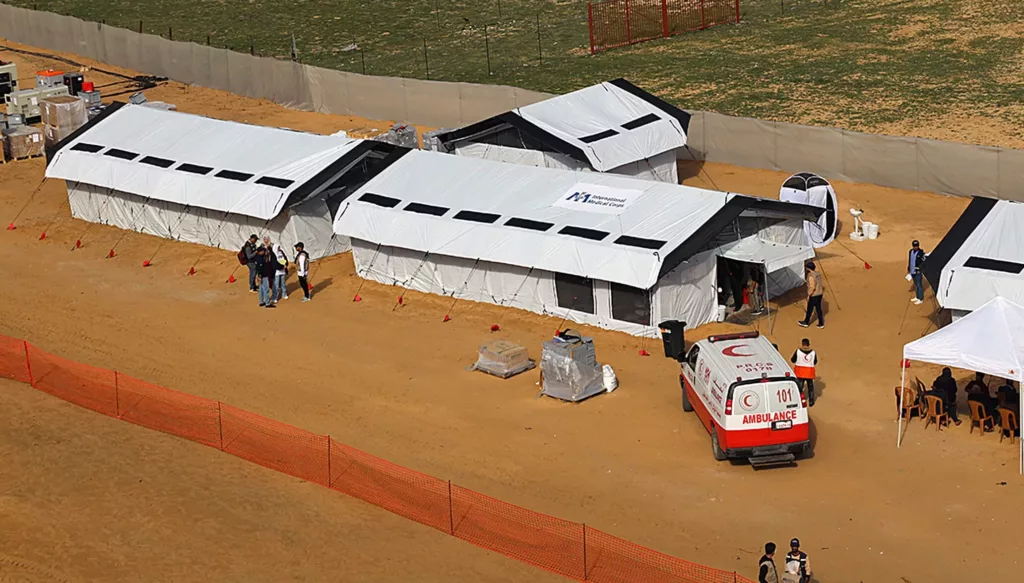International Medical Corps has deployed field hospitals in Gaza to help provide civilians with the healthcare they need. These activities are being carried out in close coordination with US, Egyptian, Israeli and Red Cross authorities.
We initially deployed a large field hospital in southern Gaza in early January 2024. This hospital had 160 beds for patients with a wide range of needs, and offered an emergency room, a Level 1 intensive-care unit, operating theatres, a fully stocked pharmacy, X-ray and ultrasound machines, a laboratory and blood-transfusion services. It provided care 24/7 and was serving more than 1,000 civilians every day.
We deployed a second field hospital in Deir Al Balah, in central Gaza, in early May. This hospital began with 50 beds and at the height of our response—after we shifted operations from the southern-Gaza facility—offered more than 250, serving as many as 2,000 civilians every day. We provide a complete range of lifesaving services, alongside integrated nutrition services, child-protection services, mental health care, services addressing violence against women and girls, and facilities and services related to water, sanitation and hygiene. We also are working with local authorities to explore the need for additional facilities and support in the region.
Our multi-pronged, integrated approach focuses on immediate relief to save lives, alleviate suffering and promote well-being, while we contribute to ensuring longer-term resilience through training. We are:
- increasing access to and availability of quality lifesaving medical and mental health services;
- improving access to and availability of quality nutrition services;
- reducing the risks and mitigating the consequences of violence against women and girls while addressing child-protection concerns; and
- improving access to safe drinking water and ensuring proper hygiene practices.
International Medical Corps also coordinates with functioning facilities in Gaza to support patient referrals and ensure continuity of care wherever possible. And to further extend health access and help overcome barriers to care for Gaza’s most vulnerable, International Medical Corps provides services throughout the region by working with trusted partners.






















